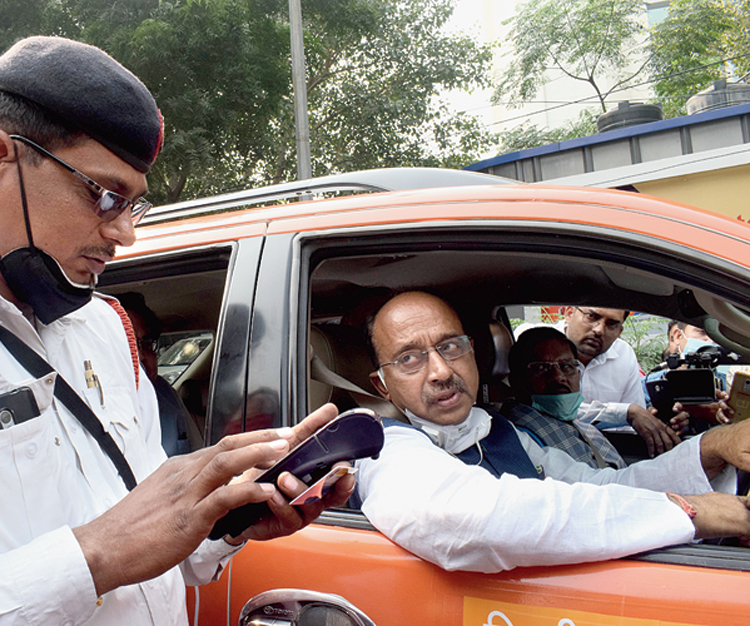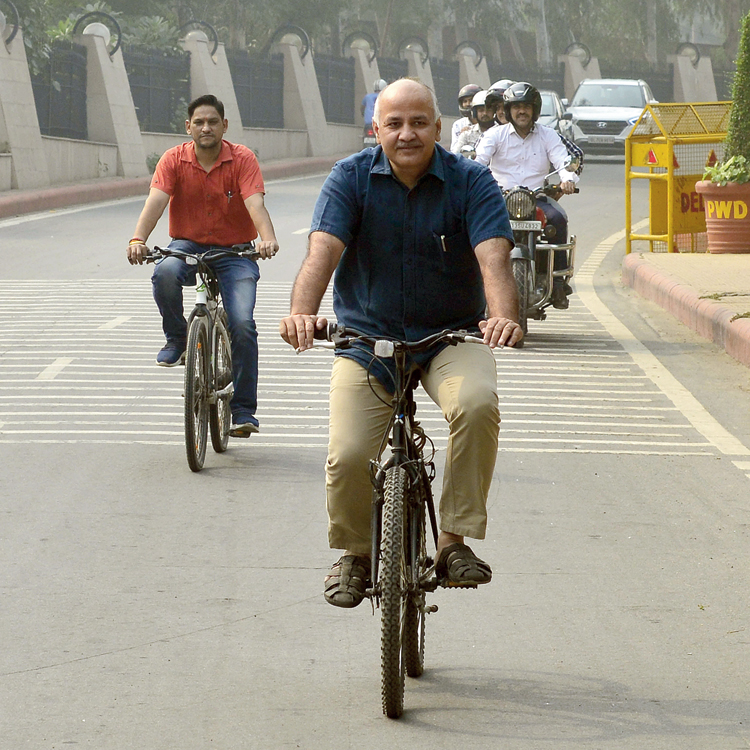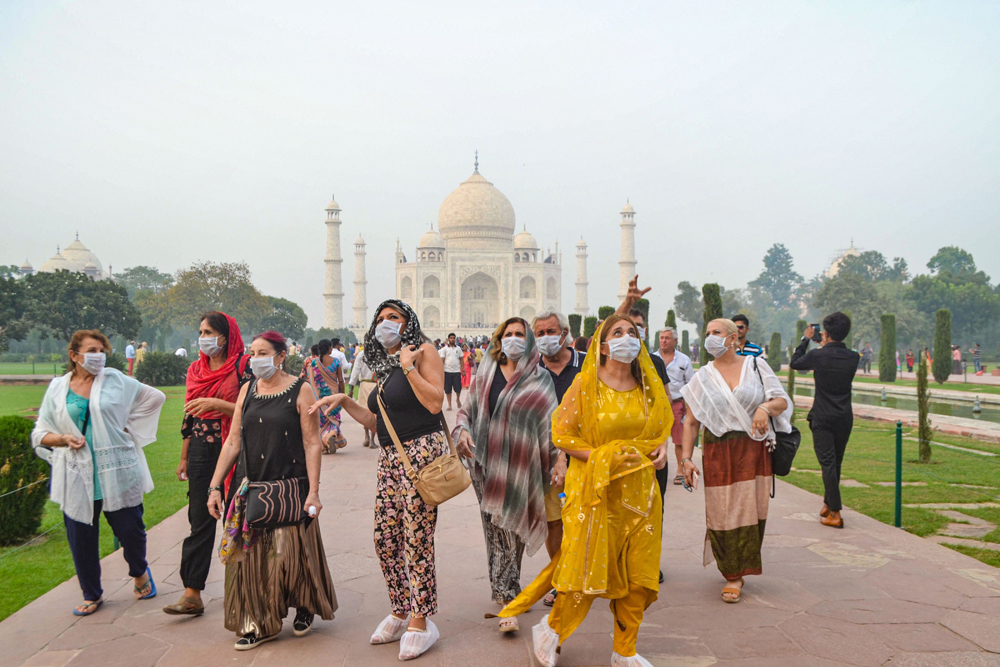The Supreme Court on Monday temporarily banned construction, demolition and waste-burning in the National Capital Region and reaffirmed the total ban on stubble-burning and diesel generators while passing a slew of directives to tackle the runaway air pollution in Delhi.
It threatened to haul up everyone “from bottom to top” — chief secretary to district collector, police officer to gram panchayat official — in Punjab, Haryana and Uttar Pradesh if their farmers continued burning crop stubble, considered the prime cause of Delhi’s air pollution.
The bench of Justices Arun Mishra and Deepak Gupta also censured the Delhi and central governments for doing little on pollution except “passing the buck”.
It questioned the Delhi government’s logic of selectively applying the odd-even vehicle rationing policy to private cars while exempting two-wheelers, autos and taxis.
“The air quality index level in bedrooms is above 500-600 (an AQI below 50 is considered good and anything above 300 hazardous, according to a global benchmark). This is the figure in Lutyens Delhi. Can we survive in this?” the bench said.
“Right to life is most important. No room is safe to live in this city, even in homes. People are dying; this cannot happen in a civilised country.… People (governments) are only interested in gimmicks. This is happening every year: Delhi is choking.”
Stubble burning
The court summoned the chief secretaries of Punjab, Haryana and Uttar Pradesh on Wednesday to explain what their states had done to stop stubble-burning by farmers, which the bench had been told contributed 46 per cent of Delhi’s pollution.
It asked these three states why they should not have to pay compensation for the damage caused as they had “totally failed” to prevent stubble burning.
“The time has come to fix accountability for gross violation of Article 21 (life and personal liberty)…. People are being advised not to come to Delhi. Who is responsible for this? The state governments are responsible. You must douse the stubble fires. Any further violations, we will haul the administration from bottom to top,” the bench observed.
“Farmers cannot seek protection…. We have no sympathy for the farmers. They cannot (harm) people with complete knowledge of what they are doing.”
Odd-even policy
The bench questioned the Delhi government’s periodically implemented odd-even traffic policy under which private four-wheelers with even registration numbers can ply only on even-numbered dates and those with odd numbers only the other days. One such period of rationing began on November 4 and will continue till November 15.
Justice Mishra felt this was irrational given the absence of any restrictions on two wheelers, auto-rickshaws and taxis.
“The policy will create more problems by allowing more taxis to (ply). A large number of taxis run on diesel,” he said.
The bench asked the Delhi government to submit by Friday a report with data to prove that the odd-even scheme had reduced pollution.

A traffic policeman hands a challan to BJP leader Vijay Goel for violating the odd-even rule in New Delhi on Monday Picture by Prem Singh
Buildings, garbage
All forms of construction and demolition have been banned till further orders in the National Capital Region, which includes the National Capital Territory of Delhi and several neighbouring districts in Haryana, Uttar Pradesh and Rajasthan. Every violation will entail a fine of Rs 1 lakh.
The burning of waste will attract a fine of Rs 5,000.
Governments
“The city is choking but the Delhi government and the Union of India are only passing the buck,” the bench said.
Drawing the stubble-burning states into the ambit of its reprimand, it added: “The state governments are responsible (for the pollution). All of them — they are interested only in electioneering. The state governments are making a mockery of everything….”

Delhi deputy chief minister Manish Sisodia leaves for his office on a bicycle from his home in New Delhi on Monday Picture by Prem Singh
Other measures
- Water should be sprinkled on the roads to tackle the dust, the bench said. It directed IIT Delhi to suggest the water pressure the sprinklers should employ.
- The court-mandated Environment Pollution Control Authority should decide whether to ban diesel trucks from Delhi and close polluting industries.
- Authorities must ensure there are no power cuts, so that generators are not used except by the essential services during emergencies.
- The court’s directions must be given wide publicity over the print and electronic media; the panchayats must spread awareness.
- The Centre and the states concerned should draw up a road map within three weeks to tackle the foul air, which should include a traffic plan to check any pollution arising out of traffic congestion.











